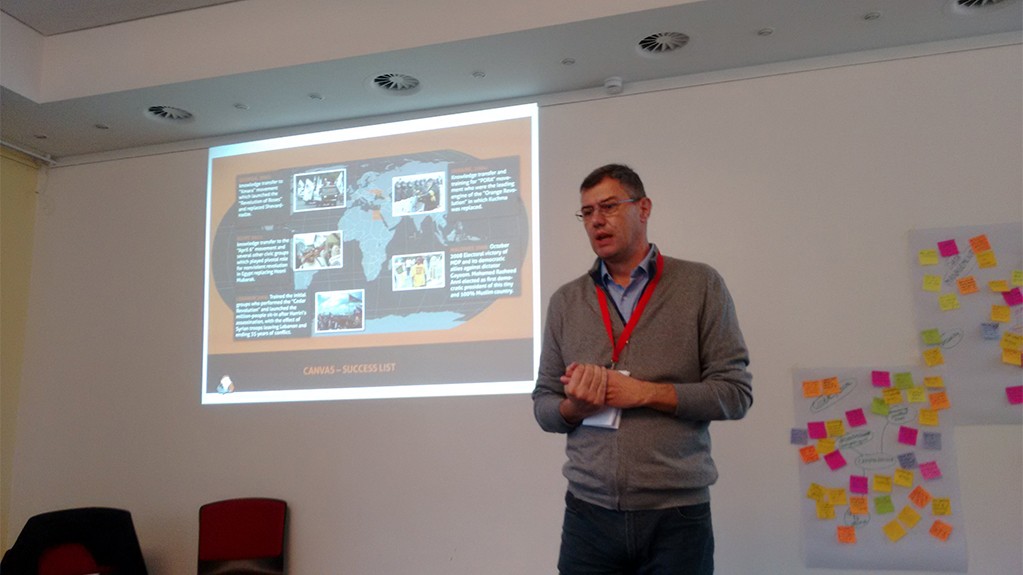‘’Accusing Canvas of promoting some kind of violence is absolutely ridiculous. I am not afraid of the accusations of the State Security Service, because these accusations are false. I can prove that everything they pulled and poorly edited was taken out of context,’’ says Sinisa Sikman, a citizen of Serbia, in an interview with Voice of America. The State Security Service of Georgia (SSSG) accuses Sikman, along with two Serbian colleagues, of training young people in Georgia in techniques for overthrowing the government.
News
‘’The goal of the training was not to change the regime, as is often portrayed not only in the Georgian media but throughout the world. Our main goal is to teach non-violent struggle based on specific examples. I saw what the Secret Service agents said and how they took specific examples out of context.
Of course, some examples are quite crude, but this was my personal challenge with Milošević, so I used some examples from my personal experience.’’ Sikman also spoke about his questioning by the SSSG:
‘’I spent more than six hours there, my colleagues slightly less. In the end, it was just a conversation. No instructions were given as to whether or not we should do anything. After that, we left the building, had dinner, and caught our flight. That was it, the whole story. I saw in the morning that they had taken pictures and were saying they knew what we said. In fact, I knew all along that they were filming, but now I saw for myself.
I'm in Belgrade right now and the only thing I'm worried about is the civil society in Georgia, that's my main concern. It seems that they [Georgian government] are trying to intimidate civil activists and I think about the people who are active there because I have seen many countries that are going the wrong way. I hope Georgia will not choose this path.’’
The Civil Society Engagement Program is a five-year initiative carried out by the East-West Management Institute (EWMI) with USAID funding. The EWMI website publicly states that various international and local organizations, including CANVAS (Center for Applied Nonviolent Action and Strategies), will work closely with EWMI throughout the program.
At a briefing held at the State Security Service on October 2, SSSG representative Khvicha Begiashvili said that one of the large groups of non-governmental organizations and civil activists, who should play a decisive role in the preparation and execution of revolutionary movements to violently overthrow the government, was retrained with the funding of USAID. After that, the Speaker of the Parliament of Georgia, Shalva Papuashvili, accused USAID of funding the riots.
According to Prime Minister Irakli Gharibashvili, the statements made by the Security Service are of a preventive nature and he is expecting a ‘’transparent explanation’’ from the local USAID office.
According to the statement issued by the US embassy in Georgia in response to the allegations, accusations against one of USAID's projects are false and fundamentally misrepresent the goals of American assistance to Georgia. The same was echoed by the Principal Deputy Spokesperson for the U.S. Department of State, Vedant Patel, who was asked to comment on the matter at a briefing held in Washington on October 3.
According to Patel, the US will continue to help Georgian organizations that work to ensure the adherence to basic rights stipulated by the Constitution of Georgia and the country's international obligations.















